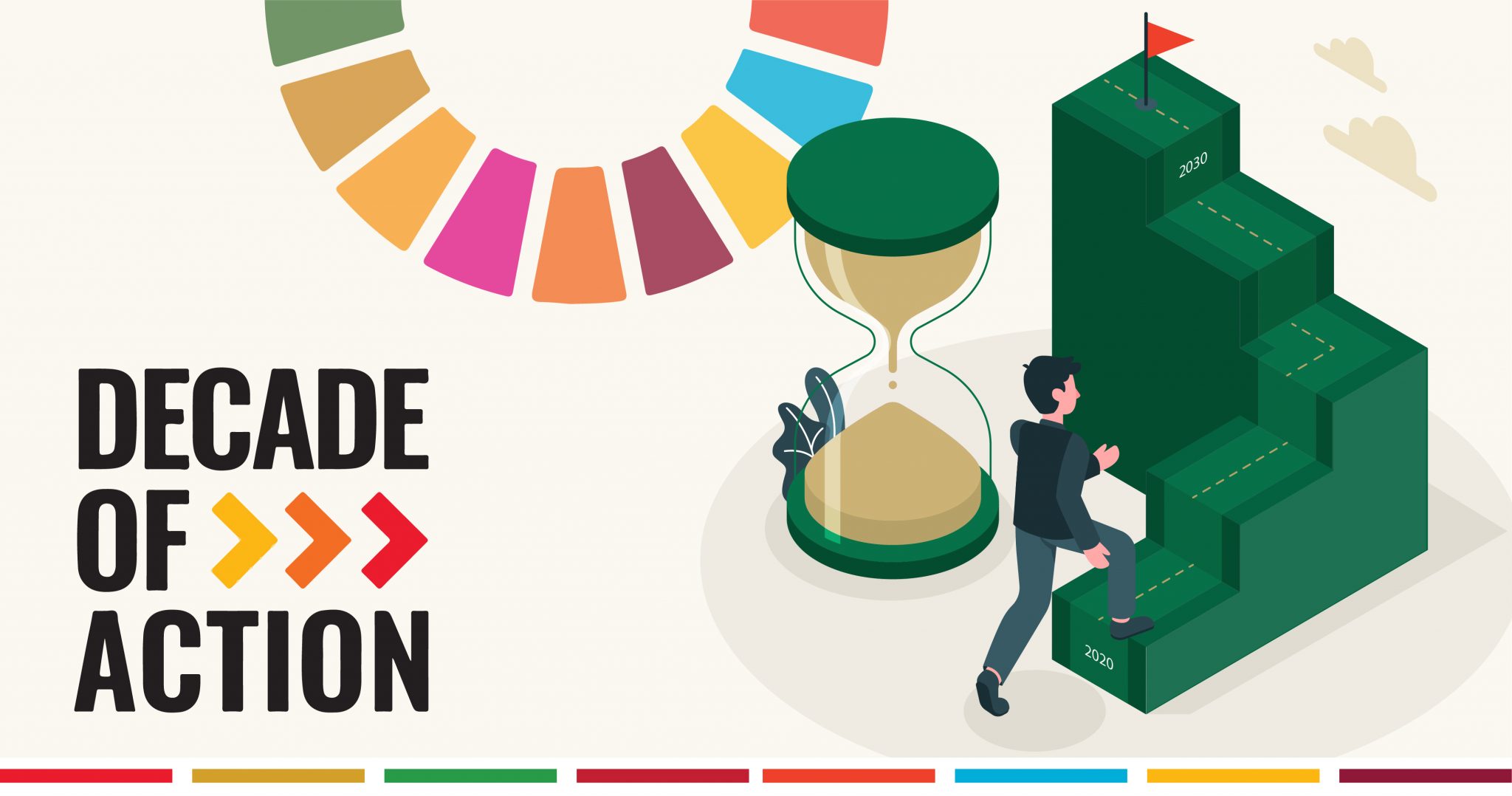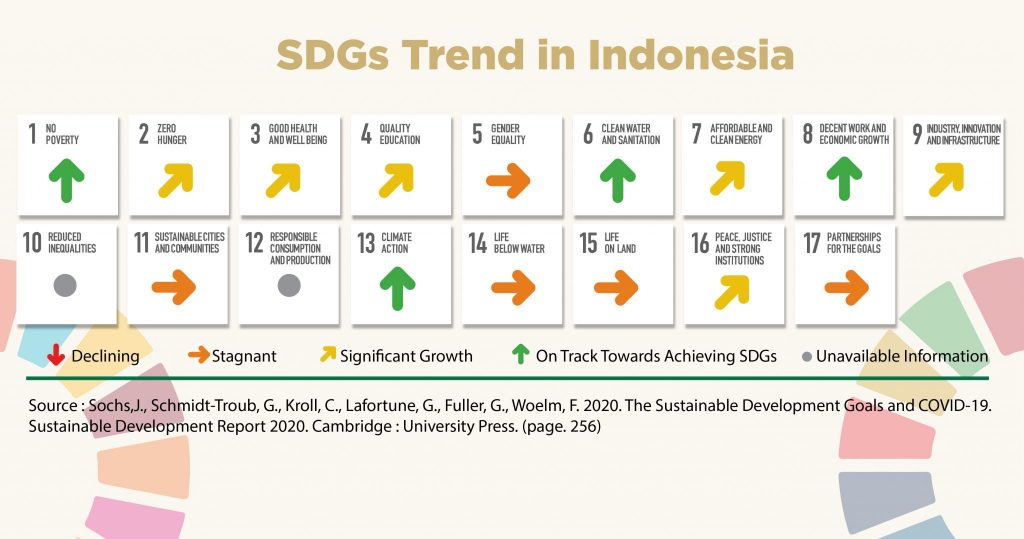Is it Possible to Achieve the Sustainable Development Goals by 2030?

The Sustainable Development Goals (SDGs) are an urgent call to action to end poverty while improving health and education, reducing inequality and tackle climate change. Indonesia has climbed from 102 last year to 101 out of 166 countries in the SDG Index 2020, which measures performance against the 17 SDGs, but much work remains to be done.
In the report ‘The Sustainable Development Goals and Covid-19’, 10 out of 17 SDGs in Indonesia have improved where as there is stagnation for goals 5 (Gender Equality), 11 (Sustainable Cities and Communities), 14 (Life Below Water), 15 (Life on Land), and 17 (Partnerships for the Goals).
Despite the positive development in certain areas, Indonesia still has its challenges when it comes to goals 2 (Zero Hunger), 3 (Good Health and Well-Being), 6 (Clean Water and Sanitation), 9 (Industry, Innovation, and Infrastructure), 10 (Reduced Inequalities), 15 (Life on Land), and 17 (Partnership for the Goals).

Covid-19 and the Decade of Action to deliver the SDGs
In September 2019, world leaders called for a Decade of Action, with a pledge to mobilize financing, strengthen institutions, and enhance national implementation in achieving the Goals by the target date of 2030. Unfortunately early this year we were hit by the Covid-19 pandemic, a health crisis that has quickly become a human and socio-economic crisis, impacting our progress in achieving the 17 SDGs.
The United Nations University World Institute for Development Economics Research (UNU WIDER) concluded that 400 million people have fallen into poverty because of Covid-19. In Indonesia, it was reported that there are 1.63 million new poor due to this pandemic.
Relating to goal 8 Decent Work and Economic Growth, the International Labour Organisation predicted that there are 195 million people who have lost their jobs. Meanwhile, Indonesian Ministry of Labour has said that 3.05 million people lost their jobs. On top of that, there is a rise in masks and personal protective equipment waste, affecting goal 14 Life Below Water and 15 Life on Land.
Some of the examples above raise concerns that it might push back the achievement of SDGs in Indonesia. The 10 years deadline coupled with the new challenges caused by pandemic make the situation seems impossible. However some have argued that we should view this as a wake-up call and an opportunity to re-evaluate and adjust our strategy in achieving the SDGs.
What’s Next In Our Journey Towards Achieving the SDGs?
The SDGs are a strong focus at the national level, but often have not fully penetrated at the regional level. The process of localizing SDGs achievements at the regional levels is actually one of the keys to Indonesia’s progress in moving forward.
As a part of its effort in implementing the SDGs, Indonesia is preparing to launch SDG Academy Indonesia at the end of 2020. A collaboration between UNDP Indonesia, Tanoto Foundation, an independent family philanthropy organisation founded by Sukanto Tanoto and Tinah Bingei Tanoto in 1981, and the Ministry of National Development Planning of the Republic of Indonesia, this innovative programme is designed to assist Indonesian development actors in using the SDG framework, including contextualizing and localizing SDGs, and developing leadership in these areas.

Leave a Reply